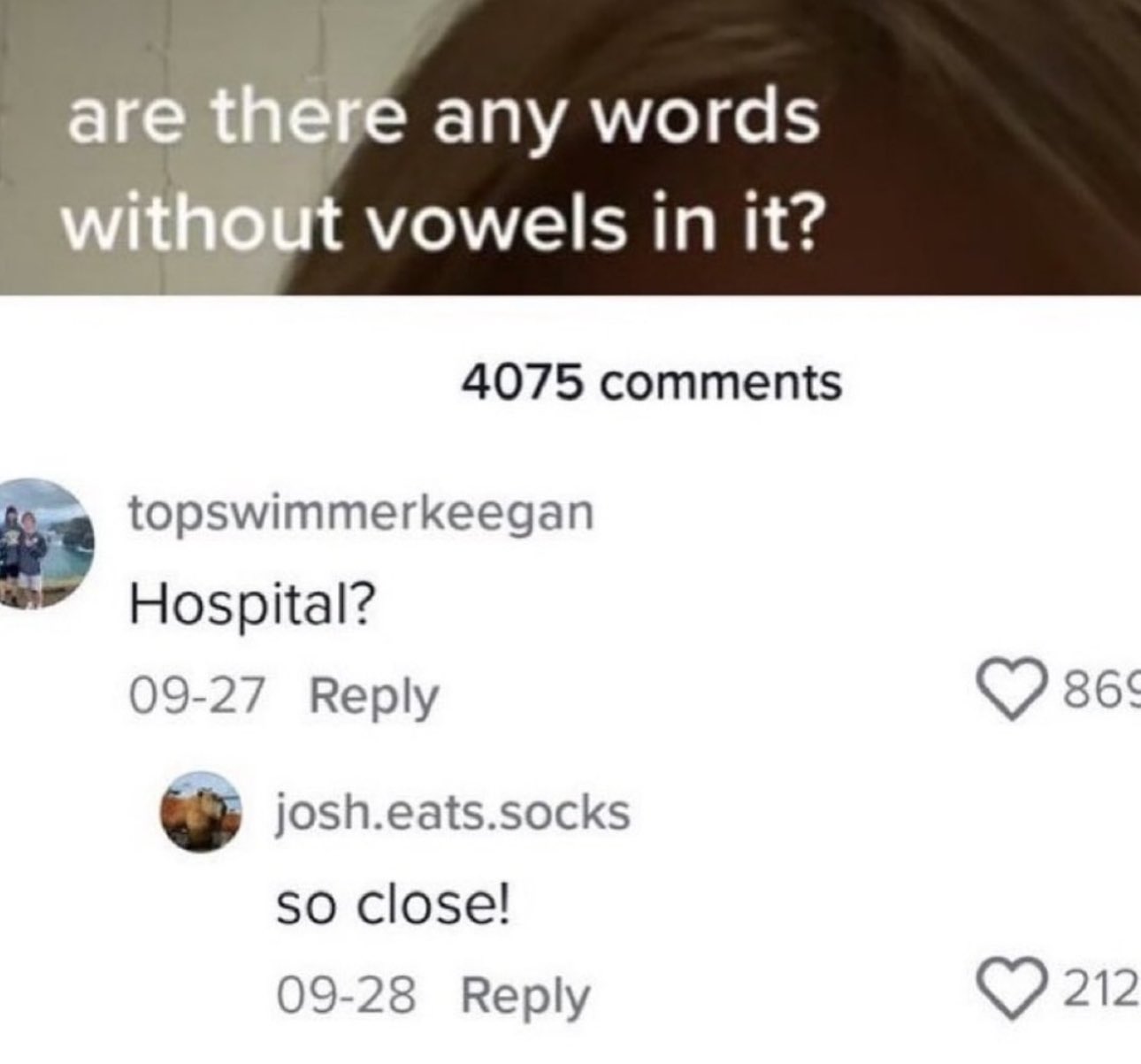this post was submitted on 31 Dec 2023
244 points (94.2% liked)
Funny: Home of the Haha
5661 readers
386 users here now
Welcome to /c/funny, a place for all your humorous and amusing content.
Looking for mods! Send an application to Stamets!
Our Rules:
-
Keep it civil. We're all people here. Be respectful to one another.
-
No sexism, racism, homophobia, transphobia or any other flavor of bigotry. I should not need to explain this one.
-
Try not to repost anything posted within the past month. Beyond that, go for it. Not everyone is on every site all the time.
Other Communities:
-
/c/[email protected] - Star Trek chat, memes and shitposts
-
/c/[email protected] - General memes
founded 1 year ago
MODERATORS
you are viewing a single comment's thread
view the rest of the comments
view the rest of the comments

Ply?
But only if you reject the "sometimes y" clause.
rhythm.
I think there might be a sometimes w clause too. But any w words I can think of have a y anyway
W is a sometimes vowel in Welsh. There are a few Welsh words that are valid in Scrabble dictionaries, which is really the only metric that matters. There are also several onomatopoeias that are valid Scrabble words, like mmm or brr or tsktsks. That last one is the only 7 letter word with no vowels or sometimes vowels.
Maaan, everything is a vowel if you just Welsh it hard enough.
What?
Also by/dry/cry/pry etc. There are loads if you exclude y as a vowel.
So whether hospital has vowels depends on what country you are in and if you have insurance? /J
I was just learning about this today in response to this post! I had no idea that the definition of a vowel is based on what sound you actually make, rather than it having anything to do with what you write.
It's kind of weird that it's not taught that way in schools. Like, you're just told a/e/I/o/u are the vowels and left to get on with it. Seems to me that could just be changed to "by the way it's a/e/I/o/u/y/w, off you go".
I can only imagine they're downvoting because they've had a better education than me, or paid more attention in class, or read the Wikipedia entry ten minutes before me.
Exactly! I mean, some people (looking at you downvoters) learnt that during their education. But I (we?) didn't, and this has been a really interesting find for me.
I genuinely love learning about linguistic weirdness, I just don't know a lot about it. Or have many occasions to learn.
I was once told on one croud-knowledge site that in English letters don't imply sounds and there is no such thing as "this letter sounds like that in this word"
Makes me wonder what they would've told me about this "sometimes Y" rule that is exactly based on letter-sound correspondence
IDK what they're teaching these days, but back in my day (😭) it was
Back in my day, we didn't even have "and sometimes Y".
I'm not sure if I'm older or younger than you so IDK if it's trending better or worse. I'm late 30s, for reference. Also Canadian since that probably makes a difference.
I'm a little younger than you. I live in the US, but I was homeschooled in my early school years, so it's possible the curriculum my mom used simply didn't teach it. Or maybe I've simply forgotten they taught it.